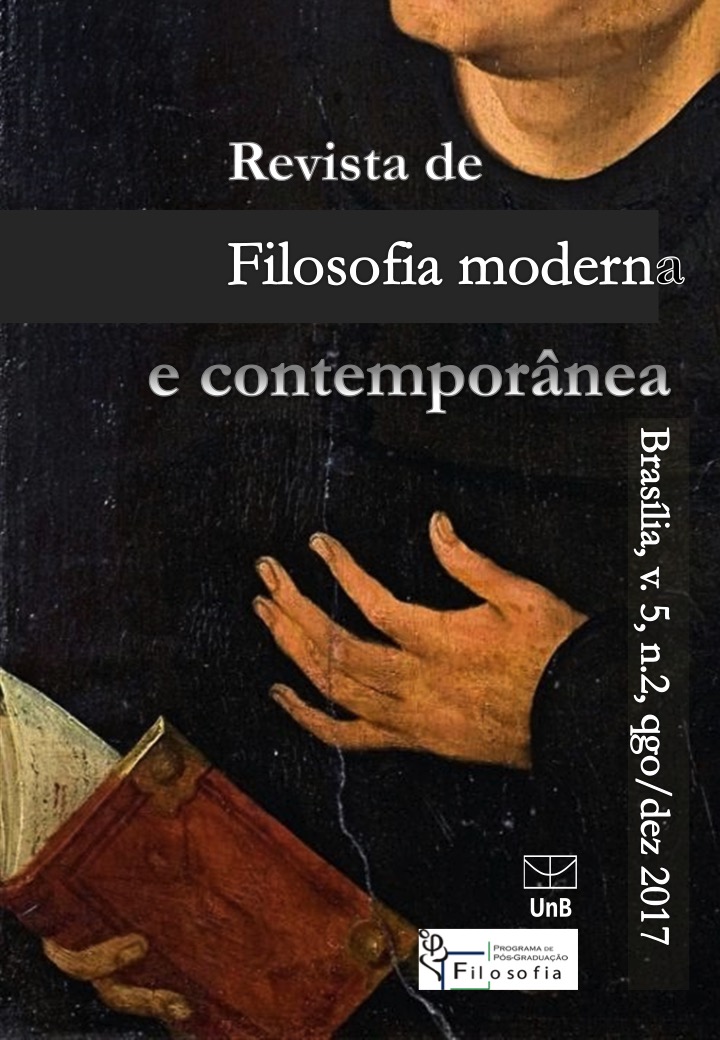Deleuze sobre a importância do acordo discordante em Kant
DOI:
https://doi.org/10.26512/rfmc.v5i2.12610Parole chiave:
Gilles Deleuze. Immanuel Kant. Terrence Malick. Filosofia Continental. EstéticaAbstract
Apresentamos a leitura deleuziana do papel e do poder da imaginação e do esquematismo no juízo estético segundo Immanuel Kant destacando, em particular, a importância de se pensar um desacordo entre faculdades e de, no limite, afirmarmos a impossibilidade de uma filosofia da arte. Como se dá o processo que liga sensações e conceitos, arte e filosofia? Ao respondermos a esta questão, também esclarecemos a situação peculiar de Kant na filosofia de Gilles Deleuze e a leitura que este faz em A Filosofia Crítica de Kant, publicado em 1963. Teremos como objeto de análise um filme sensorial, To the Wonder/A Essência do Amor (2012), realizado por Terrence Malick.
Downloads
##submission.downloads##
Pubblicato
Fascicolo
Sezione
Licenza
Copyright (c) 2018 Susana Viegas

Questo lavoro è fornito con la licenza Creative Commons Attribuzione - Non commerciale - Non opere derivate 4.0 Internazionale.
Direitos Autorais para artigos publicados nesta revista são do autor, com direitos da primeira publicação para a revista. Em virtude dos artigos aparecerem nesta revista de acesso público, os artigos são de uso gratuito, com atribuições próprias, em aplicações educacionais e não-comerciais.


